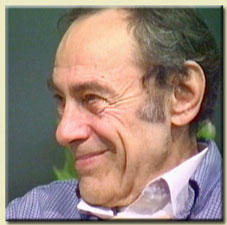John Locke Quotes - Page 7
John Locke (2012). “The Second Treatise of Government and A Letter Concerning Toleration”, p.80, Courier Corporation
John Locke (2012). “A Letter Concerning Toleration: Latin and English Texts Revised and Edited with Variants and an Introduction”, p.65, Springer Science & Business Media
John Locke (1828). “An essay concerning human understanding ... The twentieth edition, etc”, p.15
John Locke (1956). “The Second Treatise of Government: (An Essay Concerning the True Original, Extent and End of Civil Government), And, A Letter Concerning Toleration”, p.20, Library of Alexandria
John Locke, Ruth Weissbourd Grant, Nathan Tarcov (1996). “Some Thoughts Concerning Education: And, Of the Conduct of the Understanding”, Hackett Publishing
John Locke, David Wootton (1993). “Locke: Political Writings”, p.275, Hackett Publishing
John Locke, John Milton (1830). “Some thoughts concerning education”, p.166
John Locke (1836). “An Essay Concerning Human Understanding”, p.532
John Locke (1824). “The Works of John Locke: In Nine Volumes”, p.274
John Locke (1759). “THE WORKS OF JOHN LOCKE, Esq;: In THREE VOLUMES. To which is Added, The LIFE of the AUTHOR; AND A COLLECTION of Several of His PIECES Published by Mr. DESMAIZEAUX.”, p.208
John Locke, George Berkeley (2010). “Locke, Berkely & Hume”, p.106, Cosimo, Inc.
John Locke, Ruth Weissbourd Grant, Nathan Tarcov (1996). “Some Thoughts Concerning Education: And, Of the Conduct of the Understanding”, Hackett Publishing
John Locke (1813). “An Essay Concerning Human Understanding”, p.257
John Locke, Francis Bacon (1825). “The Conduct of the Understanding: Essays, Moral, Economical, and Political”, p.128
John Locke, George Berkeley (2010). “Locke, Berkely & Hume”, p.113, Cosimo, Inc.
John Locke (1824). “Essay concerning human understanding (concluded) Defence of Mr. Locke's opinion concerning personal identity. Of the conduct of the understanding. Some thoughts concerning reading and study for a gentleman. Elements of natural philosophy. New method for a common-place book”, p.328
I have spent more than half a lifetime trying to express the tragic moment.
"The Guardian", August 11, 1988.
What humanity abhors, custom reconciles and recommends to us.
John Locke, Alfred Howard (1834). “The Beauties of Locke, Consisting of Selections from His Philosophical, Moral, and Theological Works”, p.62
John Locke, George Berkeley (2010). “Locke, Berkely and Hume”, p.84, Cosimo, Inc.
I am sure, zeal or love for truth can never permit falsehood to be used in the defense of it.
John Locke (1824). “The Works of John Locke: The reasonableness of Christianity. A vindication of the Reasonableness of Christianity, from Mr. Edward's reflections. A second vindication”, p.186
John Locke (1727). “The Works of John Locke”, p.392







